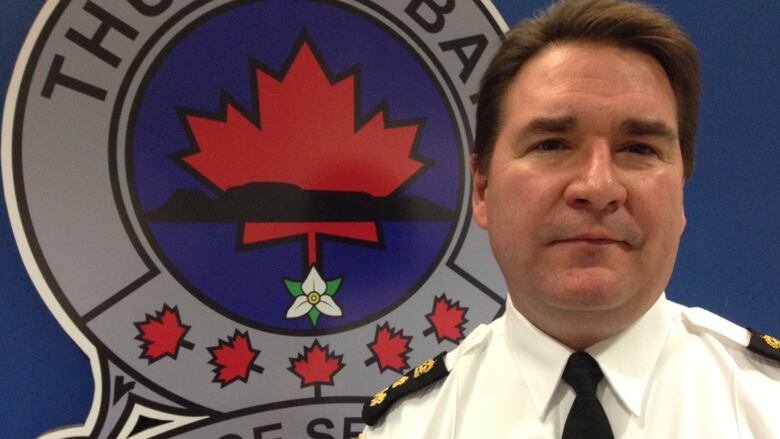Police street check changes may prove challenging, Thunder Bay chief says

Thunder Bay's chief of police says he's worried new provincial regulations around street checks could make policing more challenging.
J. P. Levesque made the comments during a meeting in the city of the Ontario Association of Chiefs of Police board of directors.
He says street checks are among the issues the group is discussing.
Officers will receive training on the new rules, but the public needs to be made aware of them as well, Levesque said.
"It's going to hinder our job, and I think it's going to lead to other situations as well," he said.
"If the public isn't educated on when you can, and have to talk to the police, it may lead to people being arrested when they shouldn't have to be arrested — if they only understood what was going on."

'Consistent' rules
In March, Ontario released its final regulations to ban police from randomly stopping people to collect personal information, a practice known as carding or street checks.
The regulations, which were first posted last October for public comment, set out what the government calls "clear and consistent rules" for voluntary police-public interactions.
Race is prohibited from being any part of a police officer's reason for attempting to collect someone's identifying information.
The new rules were announced by Yasir Naqvi, Ontario's community safety and correctional services minister.
"Police officers cannot collect your information based on the way you look or the neighbourhood you live in," said Naqvi, who touted the rules as the "first right-based framework surrounding police interactions in Ontario's history."
Starting Jan. 1, 2017, police must tell people they have a right not to talk with them, and refusing to co-operate or walking away cannot then be used as reasons to compel information.
However, police can gather personal information during routine traffic stops, when someone is being arrested or detained, or when a search warrant is executed. The new rules will also not apply to police undercover operations.
The Liberal government said it wanted to ban arbitrary stops after hearing from too many people of colour and aboriginal men and women, who said the Human Rights Code was being ignored by police who stopped them for no apparent reason.
Police chiefs must review interactions
Under the new regulations, police must offer a written record of any interactions with the public, including their name and badge number, along with information on how to contact the Independent Police Review Director.
All identifying information that is collected by officers will have to be submitted within 30 days for review by the local chief of police. At least once a year, the chiefs will have to conduct a detailed review of a random sample of entries in their database to verify it was collected in compliance with the regulation.
Chiefs must also issue an annual public report on the number of attempted collections of personal information, the sex, age and race of the individuals stopped, and the neighbourhoods where the information was collected.
The government is also promising a roundtable of experts to advise the Ontario Police College on the development of new training for officers on racism, bias awareness and discrimination.
Naqvi said he did not have an estimate about the cost of bringing in the new regulations.
"I don't think you can put a cost on protecting individual rights," he said.
The Ontario police chiefs' association board meeting continues in Thunder Bay today.

With files from Cathy Alex and CBC News